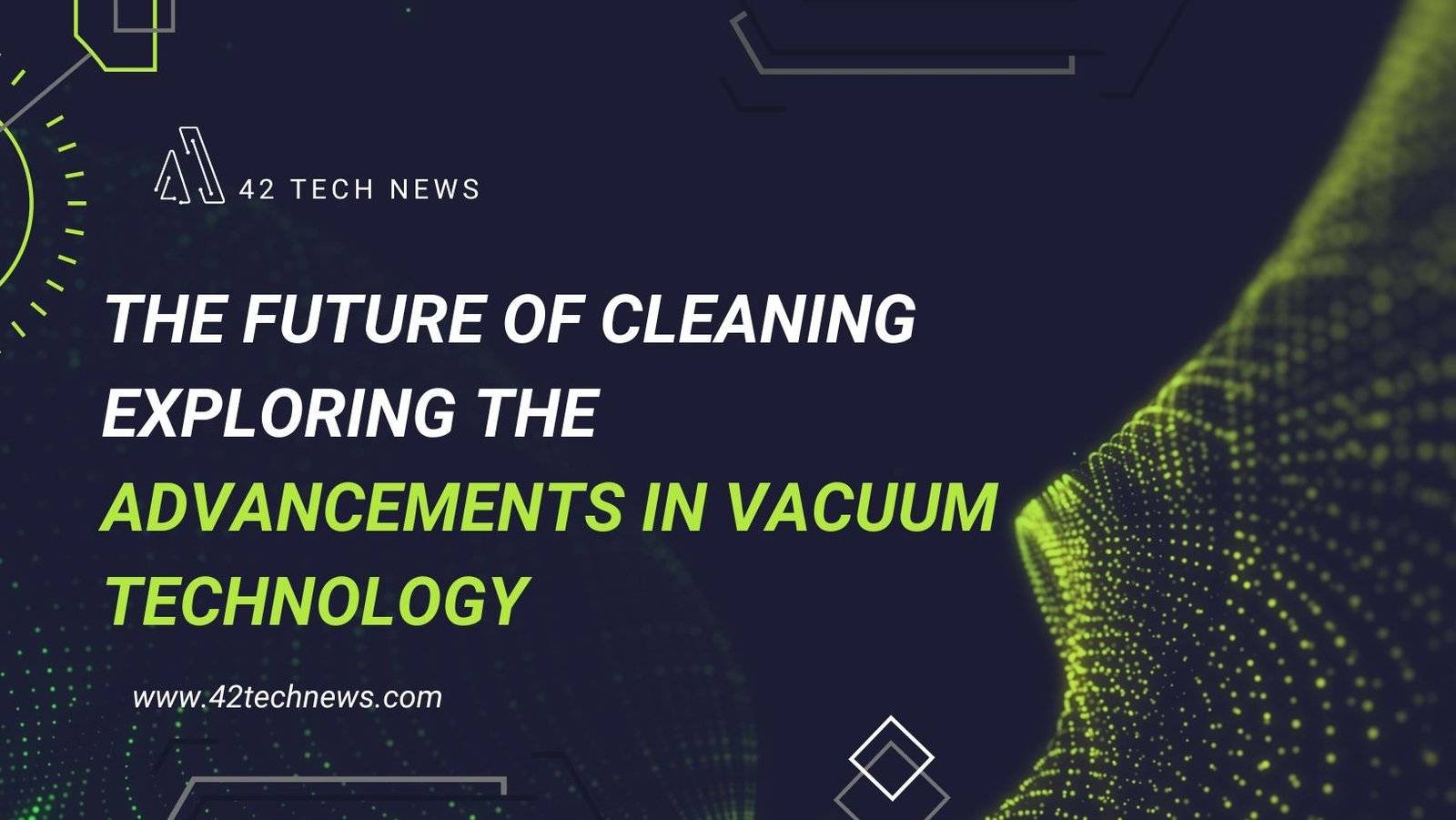Vacuum Technology has evolved significantly over the years, with innovations in vacuum technology leading the way. From traditional vacuum cleaners to state-of-the-art robotic devices, the future of cleaning looks promising. This article explores the advancements in vacuum technology and how they are shaping the way we clean our homes and workplaces.
Traditional Vacuum Cleaners
Traditional vacuum cleaners have long been a staple in households worldwide. While effective to some extent, they come with limitations. Bulky designs, limited maneuverability, and average cleaning performance are some drawbacks associated with conventional vacuum cleaners.
Emergence of Advanced Vacuum Technology
Recognizing the need for innovation, manufacturers have been investing in advanced vacuum technology. These advancements aim to overcome the limitations of traditional vacuum cleaners while providing superior cleaning performance and convenience.
Robotic Vacuum Cleaners
One of the most significant advancements in vacuum technology is the introduction of robotic vacuum cleaners. These autonomous devices can navigate through rooms, detecting and cleaning dirt and debris with minimal human intervention. They offer unparalleled convenience, allowing users to schedule cleaning sessions and monitor their progress remotely.
Smart Features Integration
Modern vacuum cleaners are not just about suction power; they are becoming smarter with the integration of artificial intelligence (AI) and Internet of Things (IoT) technology. These features enable vacuum cleaners to learn from their surroundings, optimize cleaning routes, and even interact with other smart home devices for seamless integration.
Improved Suction Power
Advancements in motor technology have led to vacuum cleaners with significantly improved suction power. These devices can effectively lift and remove dirt, dust, and pet hair from various surfaces, ensuring a thorough cleaning experience.
Enhanced Filtration Systems
With growing concerns about indoor air quality, vacuum cleaners now come equipped with advanced filtration systems. HEPA filters and other innovative technologies trap allergens and pollutants, ensuring cleaner and healthier air in your home.
Energy Efficiency
In addition to performance improvements, vacuum cleaners are becoming more energy-efficient. Manufacturers are incorporating eco-friendly features and energy-saving modes to reduce power consumption without compromising on cleaning performance.
Adaptability to Various Surfaces
Modern vacuum cleaners are designed to adapt to different types of surfaces, from hardwood floors to carpets and rugs. They come equipped with adjustable settings and specialized attachments to provide optimal cleaning results on any surface.
Noise Reduction
Gone are the days of loud and disruptive vacuum cleaners. Advanced noise reduction technologies ensure quieter operation, allowing users to clean their homes without disturbing family members or neighbors.
Maintenance and Longevity
Durability and ease of maintenance are essential factors in the design of modern vacuum cleaners. Manufacturers are using high-quality materials and innovative engineering techniques to create devices that are built to last, with minimal maintenance requirements.
Cost Considerations
While advanced vacuum technology comes at a premium, the long-term benefits often outweigh the initial investment. Improved cleaning performance, energy efficiency, and durability can result in cost savings over time, making advanced vacuum cleaners a worthwhile investment for many consumers.
Environmental Impact
Sustainability is a growing concern in the consumer electronics industry, including vacuum technology. Manufacturers are increasingly focusing on eco-conscious design and production methods to reduce environmental impact throughout the product lifecycle.
Consumer Adoption and Market Trends
The adoption of advanced vacuum technology is on the rise, driven by increasing awareness of the benefits it offers. Market trends indicate a growing demand for smart, connected vacuum cleaners with advanced features and capabilities.
Future Outlook
The future of cleaning technology looks promising, with continued advancements in vacuum technology expected in the coming years. From AI-driven cleaning algorithms to innovative sensor technologies, the possibilities are endless.
Conclusion
The advancements in vacuum technology are revolutionizing the way we clean our homes and workplaces. From robotic cleaners to smart features and improved cleaning performance, modern vacuum cleaners offer unparalleled convenience and efficiency. As technology continues to evolve, we can expect further innovations that will enhance the cleaning experience and contribute to healthier living environments.
FAQs
- Are robotic vacuum cleaners worth the investment?
- Robotic vacuum cleaners offer convenience and efficiency, making them worth the investment for many users who value their time and want to maintain a clean home with minimal effort.
- Do advanced vacuum cleaners consume more energy?
- While advanced vacuum cleaners may have more powerful motors, they often come with energy-saving features and modes that help reduce power consumption compared to traditional models.
- Are HEPA filters necessary in vacuum cleaners?
- HEPA filters are highly effective at trapping small particles and allergens, making them beneficial for households with allergy sufferers or those concerned about indoor air quality.
- Can advanced vacuum cleaners clean all types of surfaces?
- Most advanced vacuum cleaners are designed to adapt to various surfaces, including hardwood floors, carpets, rugs, and tile. They often come with adjustable settings and specialized attachments for optimal cleaning results.
- What is the average lifespan of a modern vacuum cleaner?
- The lifespan of a modern vacuum cleaner can vary depending on usage, maintenance, and build quality. However, with proper care, many models can last upwards of 5-10 years or more.
